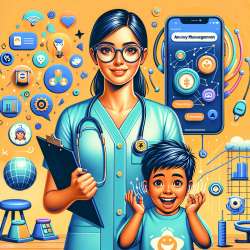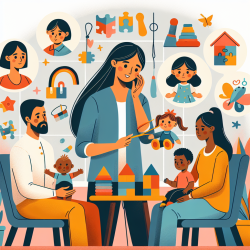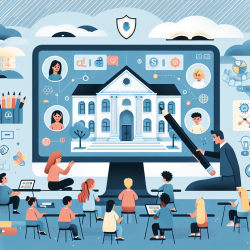In today's rapidly evolving technological landscape, the integration of mobile health (mHealth) applications into therapeutic practices offers promising advancements. A recent study titled An analysis on self-management and treatment-related functionality and characteristics of highly rated anxiety apps (Drissi et al., 2020) sheds light on the efficacy of anxiety apps, providing valuable insights that can be leveraged by speech-language pathologists (SLPs) to enhance therapeutic outcomes, particularly for children.
The study analyzed 167 highly-rated, free anxiety apps available on Android and iOS platforms, focusing on their management methods, intervention approaches, and additional functionalities. Key findings from the study revealed:
- Diverse Management Methods: The most common methods included meditation (32%), breathing exercises (28%), educational content (23%), and mood tracking (19%). These methods can be adapted to speech-language therapy to help children manage anxiety, which often accompanies communication disorders.
- Gamification Features: Approximately 51% of the apps incorporated gamification elements to motivate users. This approach can be particularly beneficial for children, making therapy sessions more engaging and enjoyable.
- Social Features: About 32% of the apps offered social features, such as community chats and links to support resources. Integrating similar features in therapy apps can provide children with a sense of community and support.
- Offline Availability: Nearly 46% of the apps were accessible offline, ensuring continuous support regardless of internet connectivity. This feature is crucial for maintaining consistent therapy progress.
- Involvement of Mental Health Professionals: Only 19% of the apps involved mental health professionals in their design. Collaborating with mental health experts can enhance the efficacy of therapy apps.
For SLPs, these findings highlight the importance of incorporating diverse, evidence-based methods into therapeutic practices. Here are some practical steps to integrate these insights:
- Adopt Gamification: Use gamified elements to make therapy sessions more interactive and fun. This can improve engagement and motivation among children.
- Integrate Breathing Exercises: Incorporate breathing exercises to help children manage anxiety and improve their focus during therapy sessions.
- Leverage Educational Content: Provide educational resources for children and their families to understand and manage communication disorders effectively.
- Ensure Offline Access: Develop offline functionalities for therapy apps to ensure continuous support and progress tracking.
- Collaborate with Experts: Work with mental health professionals to design comprehensive therapy programs that address both communication and emotional needs.
In conclusion, the integration of anxiety app functionalities into speech-language pathology practices offers a data-driven approach to enhancing therapeutic outcomes for children. By adopting diverse management methods, leveraging gamification, and ensuring offline accessibility, SLPs can create a supportive and engaging therapeutic environment. Collaboration with mental health professionals can further ensure the efficacy and comprehensiveness of therapy programs.
To read the original research paper, please follow this link: An analysis on self-management and treatment-related functionality and characteristics of highly rated anxiety apps.










